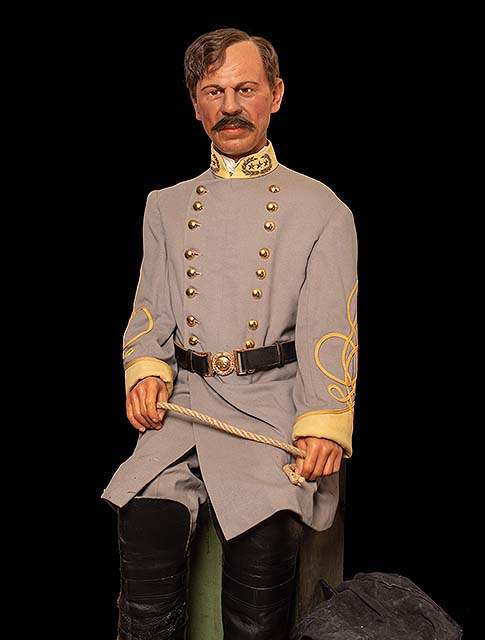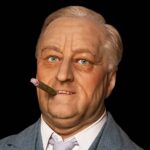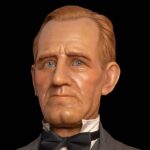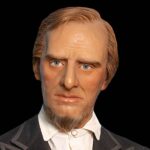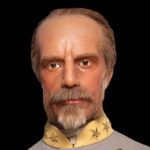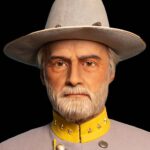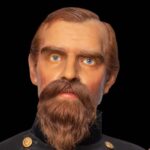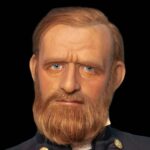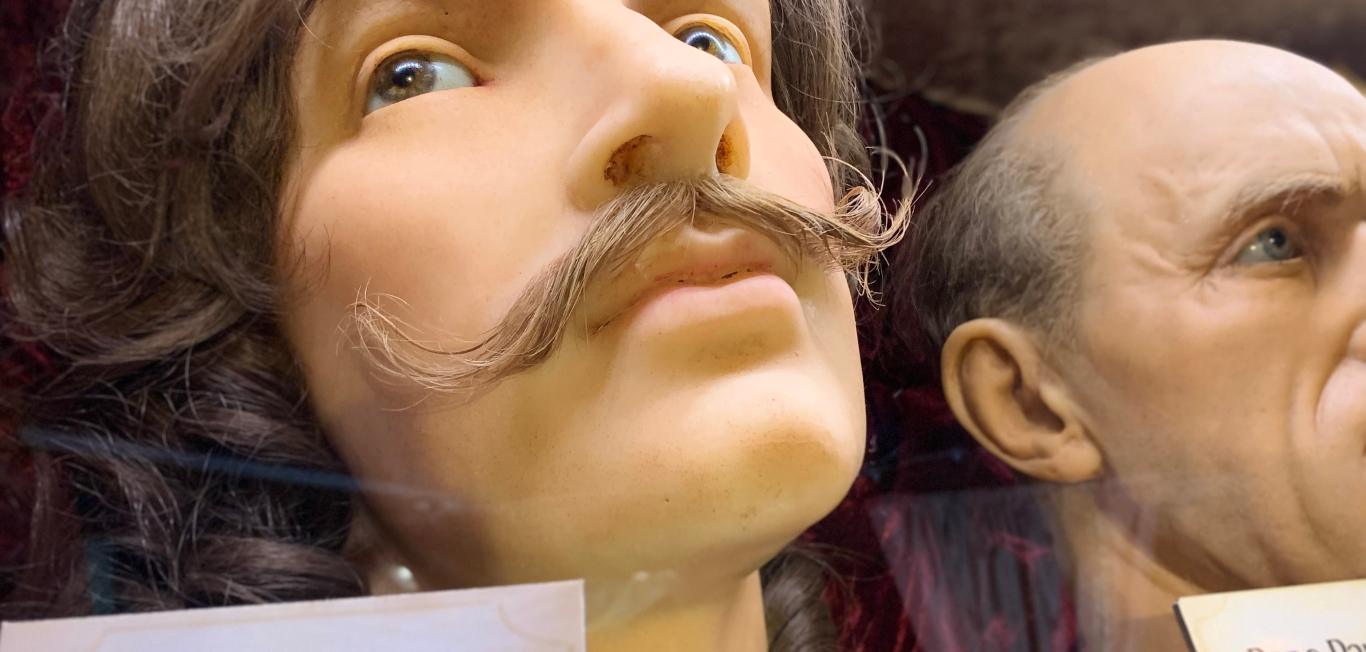History of P.G.T. Beauregard
Pierre Gustave Toutant-Beauregard was a prominent Confederate general officer who initiated the American Civil War by spearheading the Fort Sumter attack on April 12, 1861. He is often referred to as P.G.T. or G.T.
P.G.T. Beauregard’s biography begins when he was born into a famous Creole family in 1818 in St. Bernard Parish, Louisiana. He grew up on a sugarcane plantation on the outskirts of New Orleans. During his youth, P.G.T. attended a learning institution based in New York City. At West Point, he received military and civil engineering training, where he served with distinction as an engineer officer in the Mexican-American War. Later, he resigned from the U.S. Army after Louisiana withdrew from the Union. This event occurred after Beauregard was appointed superintendent of the U.S. Military Academy in 1861, becoming the first brigadier general in the Confederate States Army. He is renowned for spearheading the Fort Sumter attack, instigating the Civil War. After three months, Beauregard won the First Battle of Bull Run near Manassas, Virginia.
During the Civil War, P.G.T. Beauregard held significant commands at the Shiloh Battle in Tennessee and the Corinth Siege in northern Mississippi in 1862. In 1863, he went back to Charleston and secured it from Union forces’ frequent naval and land attacks. He is famous for defending the industrial city of Petersburg from Union troops in June 1864, which hindered the Confederate capital of Richmond’s ultimate fall in Virginia in April 1865. Despite his military triumphs, P.G.T Beauregard’s meager professional associations with then-President Jefferson Davis, and various senior officials and generals, weakened his influence over the Confederate approach.
DID YOU KNOW?
P.G.T. Beauregard is famous for defending the industrial city of Petersburg from Union troops in June 1864.
In April 1865, P.G.T. Beauregard and General Joseph E. Johnston (commander) persuaded the remnant cabinet members and Davis to end the war. At the time, Johnston surrendered to Major General William Tecumseh Sherman most of the remaining Confederacy’s armies, including Beauregard and his men. After the war, Beauregard returned to Louisiana, advocating for black civil rights and suffrage. He worked as an executive on railroad works and grew into a rich supporter of the Louisiana Lottery.
P.G.T. Beauregard’s biography and legacy remain complex and controversial, given his involvement in the Confederacy and his advocacy for civil rights after the war. In addition to his military and postwar career, Beauregard was known for his engineering and naval warfare innovations. He applied his engineering skills in Louisiana between the Mexican-American War and the Civil War to build river and coastal defenses.
As an enslaver and Confederate general, he represents a dark chapter in American history. However, his later activism for civil rights demonstrates his enthusiasm to change and evolve his beliefs. Overall, P.G.T. Beauregard was a complex and complicated figure in American history whose military and civil engineering contributions continue to be studied and recognized today.
Interesting Facts About
P.G.T. Beauregard
During the American Civil War, P.G.T. Beauregard was a Confederate general officer. Although best known for his military career, his life and accomplishments were multifaceted and complex. Beauregard’s first language was French, which he spoke at home with his Louisiana Creole family. He started learning English when he relocated to New York City at age 12. Because of his French Christian name’s length, Beauregard often marked his name as “G.T.” and was also identified as “P.T.”
DID YOU KNOW?
Beauregard's first language was French, which he spoke at home with his Louisiana Creole family.
As a qualified engineer, P.G.T. Beauregard worked as a captain and major during the war between Mexico and America. He emerged as the first American officer to arrive in Mexico City after the war. Beauregard employed his engineering skills to build river and coastal defenses in Louisiana. He conflicted with fellow Confederate general Robert E. Lee, a division that started during the Mexican-American War. This hostility continued throughout the Civil War, with Lee achieving greater military success and praise. P.G.T. Beauregard’s French-Catholic background created cynicism among the Anglo-Protestant Confederate officers. However, Beauregard’s military and engineering skills were highly valued despite this initial tension, and he held several key commands throughout the war.
P.G.T. Beauregard’s famous sharp and polarizing personality led to his transfer to the Western Theater of Operations after the First Battle of Bull Run. Regardless of his reputation, Beauregard brought numerous innovations to the Confederate Navy, including using early submarines.
Despite being an enslaver and originally unpleasant about the defeat of the South and the termination of the slave-owning aristocracy, P.G.T. Beauregard, in the end, supported black suffrage. After the war, he went back to Louisiana. He worked as an executive on railroad initiatives and successfully promoted the Louisiana Lottery. From his early military and engineering career to his later advocacy for civil rights, P.G.T. Beauregard’s biography reveals the American Civil War’s complexities and its aftermath.
Early Life of
P.G.T. Beauregard
In 1834, Toutant-Beauregard entered the United States Military Academy. To look more American, he changed his name by eliminating the hyphen. In 1838, Beauregard successfully graduated as the second in his class from the U.S. Military Academy and was later appointed as the immediate lieutenant in the U.S. Army Corps of Engineers. Beauregard’s military profession started with the Mexican-American War, where he worked as an engineer officer and was injured twice. From 1838 to 1861, P.G.T Beauregard served in the U.S. Army, and in 1853, he became a captain. In 1860, he married Caroline Deslonde, and they had three children. Unfortunately, in March 1864, Deslonde passed away in New Orleans.
DID YOU KNOW?
Beauregard’s military profession started with the Mexican-American War.
In January 1861, P.G.T. Beauregard was appointed the United States’ superintendent at the military academy. However, following Louisiana’s withdrawal from the Union on January 26, 1861, he left the position just five days later. On February 20, 1861, Beauregard quit his appointment with the U.S. Army and on March 1, 1861, was selected as the first Confederate Army brigadier general. P.G.T. Beauregard is famous for commanding the Confederate forces that made the Fort Sumter attack in April 1861, marking the introduction of the American Civil War. He was a commander of the corps and second-in-command of field operations at the First Battle of Bull Run in 1861, which was executed near Manassas, Virginia. On August 31, 1861, he became a fully-fledged general for the Confederate Army.
Furthermore, P.G.T. Beauregard had major Western Theater commands at the Shiloh Battle in Tennessee and the Corinth Siege in North Mississippi in 1862. In 1863, he went back to Charleston and safeguarded it from recurring land and naval attacks by Union forces. He is also known for defending Virginia’s industrial city, Petersburg, from Union troops in 1864, which deferred the collapse of the Confederate capital of Richmond, Virginia, in April 1865. After the war, Beauregard went back to Louisiana, where he supported black civil rights, including suffrage. He operated as a railroad policymaker and became a rich Louisiana Lottery promoter. From 1879 to 1888, P. G. T. Beauregard was chosen as an adjutant general for the State of Louisiana and served as commissioner of public works in New Orleans in 1888.
Major Accomplishments of P.G.T. Beauregard
After his military career, P.G.T. Beauregard continued serving in various societal roles. Between 1865 and 1870, he served as president of the Mississippi, Jackson, and New Orleans Railroads. During this period, he also served as the New Orleans and Carrollton Street Railway president from 1866 to 1876. In July 4. 1868, President Andrew Johnson approved the exoneration of a Confederate leader’s group, including P.G.T. Beauregard. This event marked the beginning of his involvement in politics, particularly in Louisiana. He was involved in forming the Reform Party, an alliance of moderate Democrats who supported African Americans’ civil rights.
An Act of Congress entirely restored the citizenship of P.G.T. Beauregard, which President Grant signed on July 24, 1876. From 1877 to 1893, he served as the Louisiana Lottery commissioner, a money-making business during that time. Moreover, from 1879 to 1888, he was the Adjutant General for the State of Louisiana. In 1888, Beauregard was nominated as the public works commissioner in New Orleans, a significant role in city government. During his time in this position, he attempted to improve the city’s infrastructure and beautification, including constructing a public fountain and a new city park. Overall, P.G.T. Beauregard’s postwar career was defined by his involvement in politics, railway management and public works. Despite his participation in the Confederacy during the Civil War, he offered robust support to civil rights for African Americans and worked to improve his community through his various positions in society.
Late in Life
P.G.T. Beauregard had difficulty adjusting to life as a civilian after the Civil War, as he struggled with the consequences of the Confederacy’s defeat. He hesitated to publicly swear an oath of loyalty as a former Confederate officer. Still, Robert E. Lee and Joseph E. Johnston counseled him to do so, and he eventually agreed before the New Orleans mayor in September 1865. He was among the multiple Confederate officers who President Johnson pardoned in July 1868.
DID YOU KNOW?
He was among the multiple Confederate officers who President Johnson pardoned in July 1868.
Despite his reluctance to seek amnesty, Beauregard did not leave the United States as some former Confederate leaders did. Instead, he toiled to terminate intimidating penalties Radical Republicans imposed on Louisiana during Reconstruction. P.G.T. Beauregard was lively in the Reform alliance of New Orleans’ conservative businessmen who supported civil rights and voting rights for African Americans. He tried to form a treaty between white and black residents in Louisiana to overthrow the Radical Republicans who controlled the legislature in the state.
In 1865, P.G.T. Beauregard sought service in the Brazilian army but, in the end, dropped out, citing his preference for living in the U.S. He also declined other offers to command foreign armies. Beauregard pursued various civil engineering projects and held executive positions in the railway industry, e.g. as New Orleans’ chief engineer and general superintendent and as president of the Jackson, Great Northern Railroad, Carrollton Street, and New Orleans’ railways. In 1877, P.G.T. Beauregard’s affluence was assured following his recruitment as the Louisiana State Lottery company’s supervisor. Here, he and fellow Confederate general Jubal Early supervised lottery drawings and frequently appeared in public. Still, the legislature eventually shut down the lottery due to public opposition to government-sponsored gambling.
Ultimately, P.G.T. Beauregard advanced his military writings in his later years, such as A Commentary on the Campaign Battle of Manassas and Principles and Maxims of the Art of War. From 1879 to 1888, he worked for the Louisiana State militia as an adjutant general, and in 1888, he was designated a public works commissioner in New Orleans. Despite his long and varied career, Beauregard remained haunted by his role in the Confederacy and the defeat of the South. In 1893, P.G.T. Beauregard died while sleeping in New Orleans. Edmund Kirby Smith, a surviving Confederate general, served as the “chief mourner” at his interment in the Army of Tennessee’s vault in historic Metairie Cemetery.
FAQs
What was Beauregard famous for?
P.G.T. Beauregard initiated the American Civil War by directing the siege on Fort Sumter. He was a Confederate military officer of Louisiana Creole background.
Which side did General Beauregard fight for?
Confederate.
Was Beauregard Union or Confederate?
Confederate.
What did Beauregard do for Louisiana?
P.G.T. Beauregard served in the military for a number of years before returning to Louisiana, where he promoted black civil rights, including the ability to vote, worked as a railroad executive and made a fortune by promoting the Louisiana Lotto.
